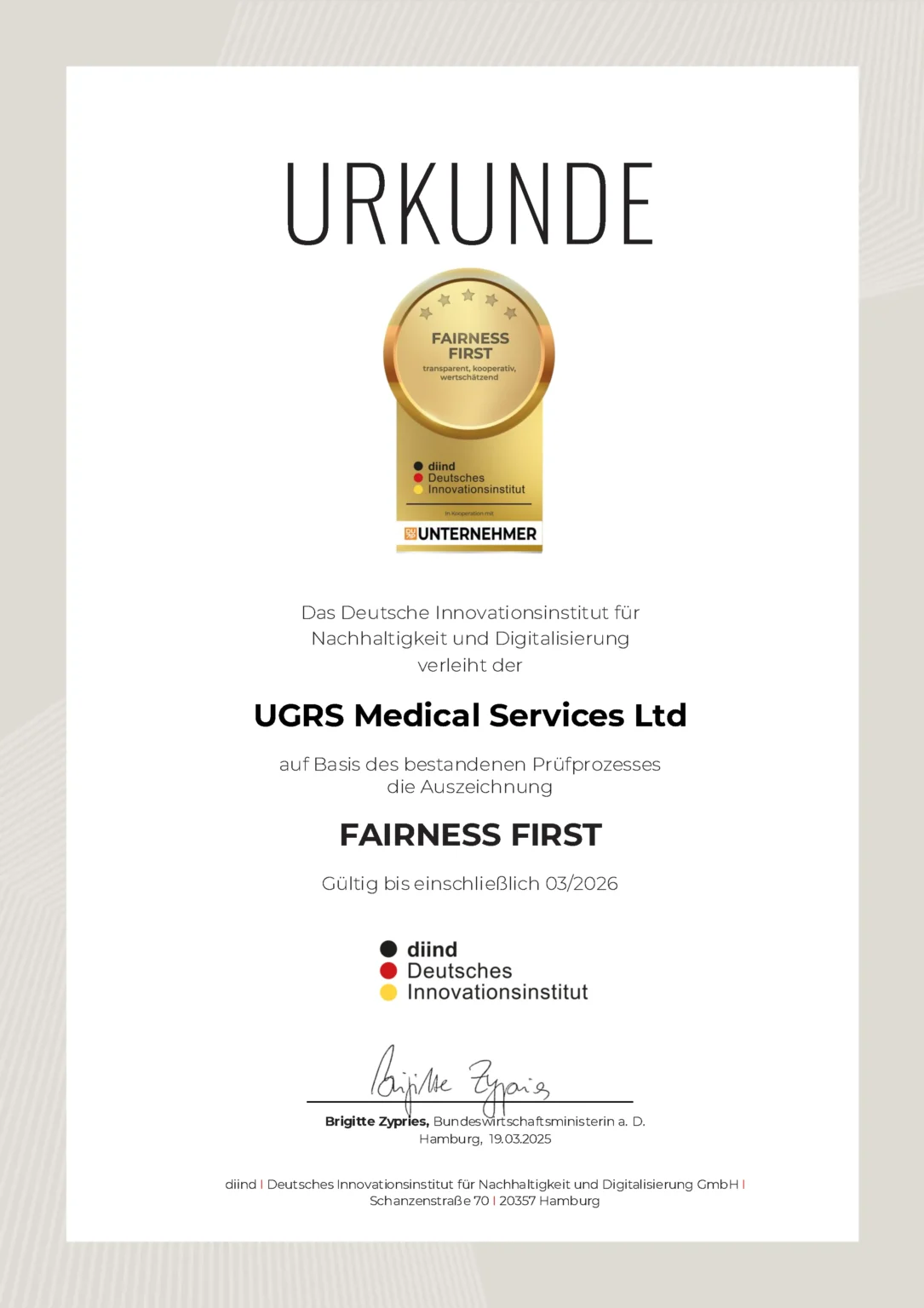Home » UGRS.Knowledge – Glossary on Penis Enlargement, Anatomy & Urology » Genital herpes
Genital herpes
Genital herpes is a common, sexually transmitted infection caused by the herpes simplex virus (HSV) – mostly by type 2(HSV-2), less frequently by type 1(HSV-1, which more often causes cold sores). The disease leads to painful blisters and inflammation in the genital area.
Typical symptoms of genital herpes are
- Small, fluid-filled blisters on the penis, scrotum, anus or thighs
- Redness, burning and itching in the genital area
- Pain when urinating or during sexual intercourse
- General feeling of illness (fever, swelling of lymph nodes) with initial infection
After the initial infection, the virus remains in the body for life, stored in nerve nodes(ganglia). It can be reactivated at any time, particularly by factors such as stress, a weakened immune system or other infections. The recurring outbreaks are usually less severe than the first episode.
Transmission
Genital herpes is mainly transmitted through direct skin-to-skin contact during vaginal, anal or oral sex. Infection is possible even in the absence of visible symptoms.
Treatment
There is currently no cure for genital herpes. Treatment aims to alleviate the symptoms, shorten the duration of the disease and reduce the frequency of relapses. Antiviral drugs such as acyclovir, valaciclovir or famciclovir are used for this purpose.
Important notes
- Consistent use of condoms reduces the risk of infection, but does not offer complete protection.
- Medical advice should be sought at an early stage if the first symptoms appear or genital herpes is suspected.
This content is for general information purposes only and does not constitute medical advice, diagnosis or treatment recommendations. It is in no way a substitute for a professional examination or treatment by a licensed physician. If you have any health complaints or uncertainties, please always consult a medical professional – especially if you have any questions about intimate surgery or sexual health.








